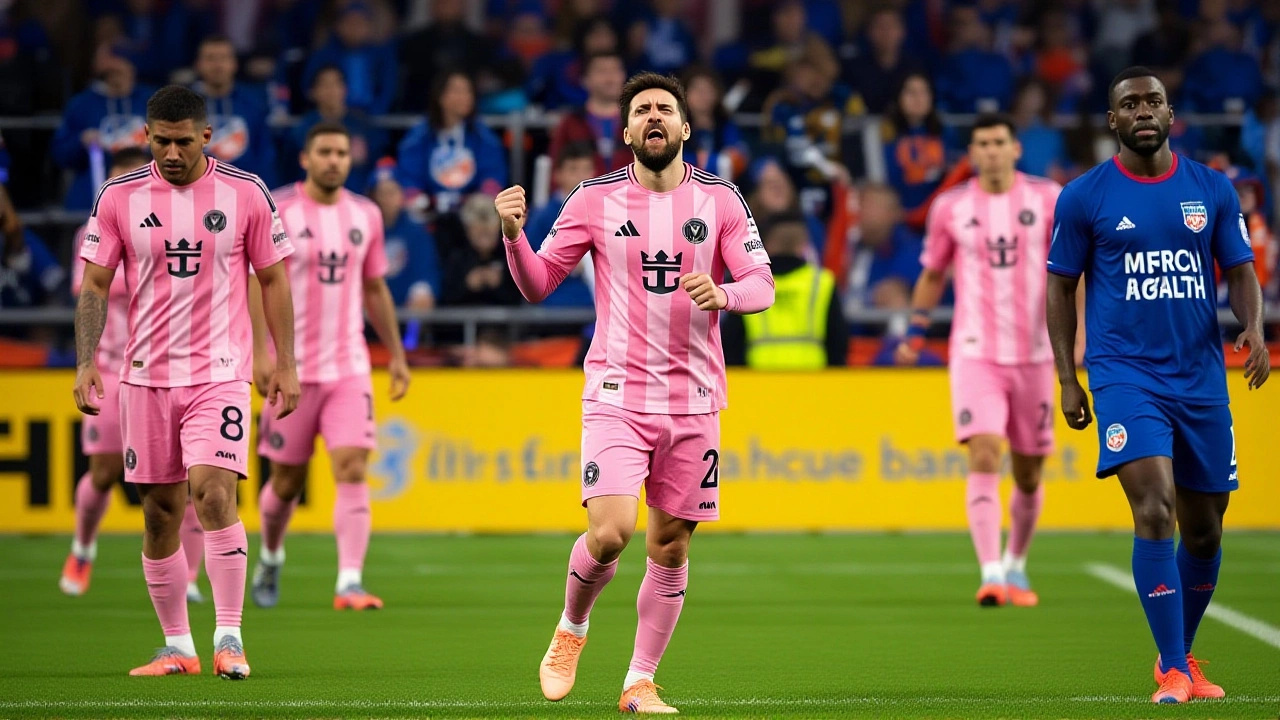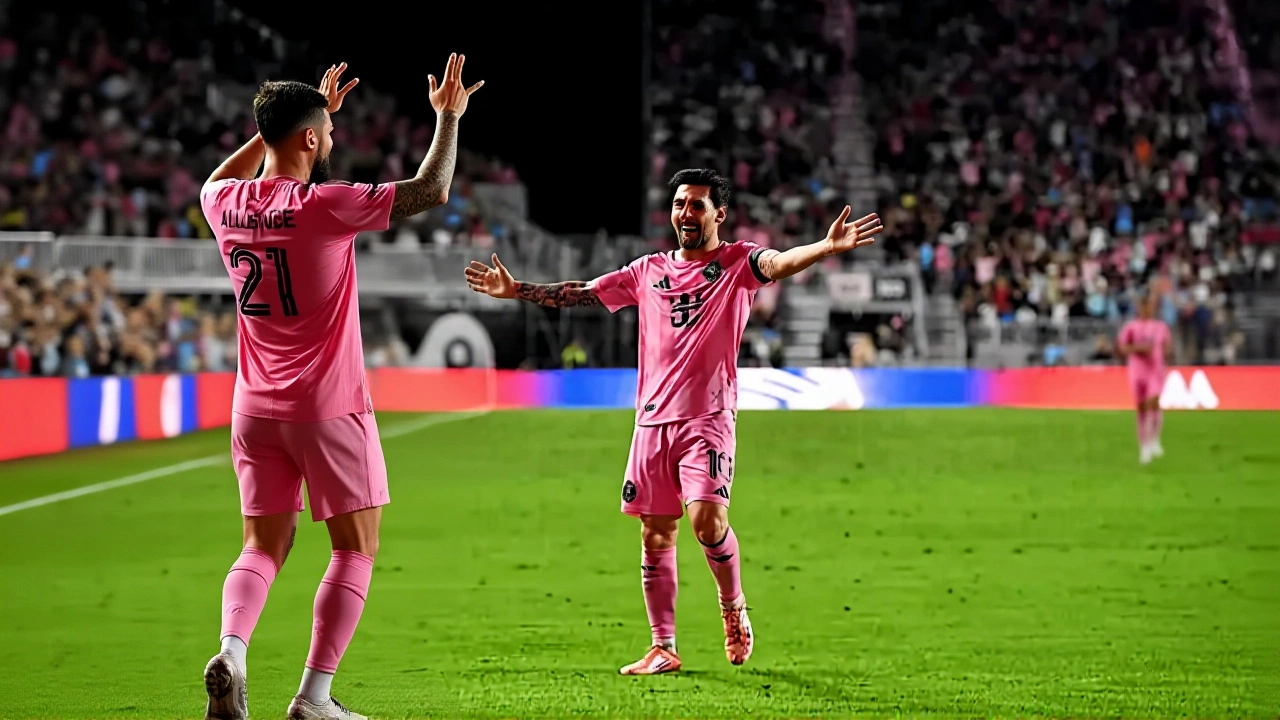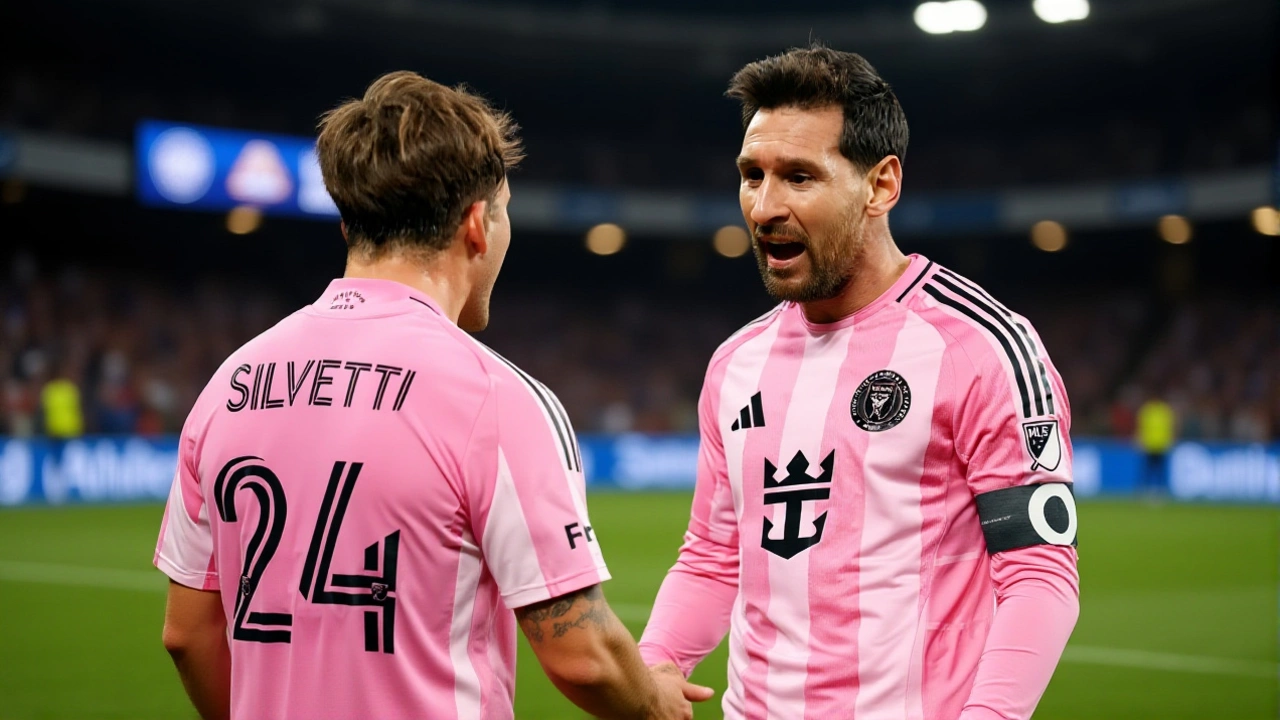When Lionel Messi stepped onto the field on November 24, 2025, he didn’t just play a game—he rewrote the rulebook. The 38-year-old Argentine legend delivered a performance for the ages, scoring one goal and dishing out three assists as Inter Miami CF demolished FC Cincinnati 4-0 in the MLS Eastern Conference Semifinal. The win wasn’t just about advancing—it was about legacy. With those four contributions, Messi set a new Major League Soccer record: 12 goal contributions in a single postseason, surpassing every player in league history. And he did it while playing like he was 28, not 38.
The Rosario Connection That Shook MLS
The magic didn’t come out of nowhere. One of the most poetic moments came when Messi, drifting inside from the left, slipped a pass to Sergio Busquets, his longtime Barcelona teammate and fellow native of Rosario, Argentina. The broadcast’s commentary, slightly garbled but unmistakable, called it: “Messi to Svetti. Svetti across. Messi’s head is in.” The “Rosario boys” had done it again. Two men from the same humble Argentine city, now lighting up American soccer’s biggest stage. It wasn’t just skill—it was chemistry forged over a decade, now rekindled on a chilly November night in Florida.But here’s the twist: Messi didn’t just play offense. He played defense too. At one point, with Inter Miami leading 2-0 and FC Cincinnati pressing, Messi was tracked covering 25 yards back toward his own goal, tracking a defender like a hunter. That’s not what you expect from a 38-year-old forward. But Messi isn’t just a forward—he’s a footballing philosopher. He knows the game isn’t won by goals alone. It’s won by control. By pressure. By presence.
A Dominance That Left No Room for Doubt
The final scoreline—4-0—doesn’t tell the whole story. Inter Miami didn’t just win. They dismantled. From the opening whistle, they dictated tempo. FC Cincinnati, led by Brazilian forward Evander, looked out of sync. One ESPN FC commentator noted: “Lel Messi has stepped up in this conference se with the turn. Evander not as much, but this is… promising.” The implication? Evander, who had carried Cincinnati’s attack all season, was rendered invisible. Messi didn’t just outplay him—he made him irrelevant.The third goal, scored by Ayende after Messi’s clever layoff, sealed the deal. The commentary: “Aende scores and it is over.” And it was. By the 60th minute, the crowd was already filing out—not in disappointment, but in awe. This wasn’t a match. It was a masterclass.

What This Means for MLS and the League’s Future
Messi’s record-setting postseason isn’t just a personal milestone—it’s a seismic shift for MLS. Before this, the single-postseason record for goal contributions was held by Zlatan Ibrahimović with 9 in 2018. Messi didn’t just break it—he blew past it. And he did it in his first full MLS playoff run. That’s not luck. That’s dominance.For years, skeptics said MLS couldn’t compete with Europe’s elite leagues. That stars came for the money, not the challenge. But Messi’s performance in these playoffs—his composure under pressure, his vision, his relentless work rate—tells a different story. He’s not just playing. He’s elevating. And he’s making MLS matter.
Inter Miami’s next opponent? The winner of the other Eastern Conference Semifinal—likely either Columbus Crew or New York City FC. Either way, they’ll be facing a team riding a wave of confidence, led by a man who’s still writing his legend one pass at a time.

The Bigger Picture: Messi’s Final Act?
At 38, Messi could have coasted. He could have taken the paycheck, played a few exhibition games, and called it a career. Instead, he’s playing like he’s chasing something bigger. Maybe it’s the MLS Cup. Maybe it’s proving that greatness doesn’t have an expiration date. Or maybe it’s simply because he still loves the game more than anyone else.What’s clear: he’s not slowing down. He’s accelerating. And if Inter Miami wins the MLS Cup, this playoff run will be remembered not just as a record-breaking performance—but as the moment a global icon chose to redefine American soccer.
Frequently Asked Questions
How many goal contributions did Messi have in the 2025 MLS postseason, and what’s the previous record?
Lionel Messi recorded 12 goal contributions (1 goal and 3 assists in the FC Cincinnati match, plus prior goals and assists in earlier playoff rounds) during the 2025 MLS postseason, breaking Zlatan Ibrahimović’s previous record of 9 set in 2018. This includes goals scored and assists provided across all playoff matches, making it the highest single-postseason total in MLS history.
Why was Sergio Busquets referred to as ‘Svetti’ in the broadcast?
The term ‘Svetti’ was a mispronunciation or audio distortion of ‘Busquets’ during the ESPN FC highlight package. Despite the error, commentators and fans immediately recognized the reference to the former Barcelona midfielder, who shares a deep connection with Messi from their shared roots in Rosario, Argentina. The bond between the two players is well-documented and remains a key narrative in Inter Miami’s success.
How did Messi’s defensive effort impact the game?
Messi’s 25-yard defensive press during a critical moment disrupted FC Cincinnati’s buildup and showcased his tactical intelligence. Unlike many aging stars who retreat, Messi maintained high energy and positional discipline, forcing turnovers and limiting counterattacks. This all-around commitment made Inter Miami’s defense more compact and contributed directly to their clean sheet.
What does this mean for Inter Miami’s chances in the MLS Cup Final?
With Messi in peak form and the team’s confidence soaring, Inter Miami is now the clear favorite to win the MLS Cup. Their attacking depth, defensive organization, and Messi’s leadership make them the most complete team in the league. Even if they face a strong opponent like NYCFC or Columbus, their ability to control games through Messi’s playmaking gives them a decisive edge.
Is this Messi’s last chance to win a major trophy?
While Messi has won nearly every major trophy in football, the MLS Cup remains elusive. At 38, this may be his final realistic shot at lifting a major international club title. His performance in the 2025 playoffs suggests he’s fully committed—not just to playing, but to winning. A title here would complete his legacy in a way no other league ever could.
How does this compare to Messi’s performances in Europe?
While MLS is less physically intense than La Liga or the Champions League, Messi’s 2025 postseason output rivals his best European playoff runs. His assist-to-goal ratio, decision-making under pressure, and ability to elevate teammates are nearly identical to his 2015 Barcelona campaign. The difference? In MLS, he’s doing it against a league still evolving—making his dominance even more remarkable.
